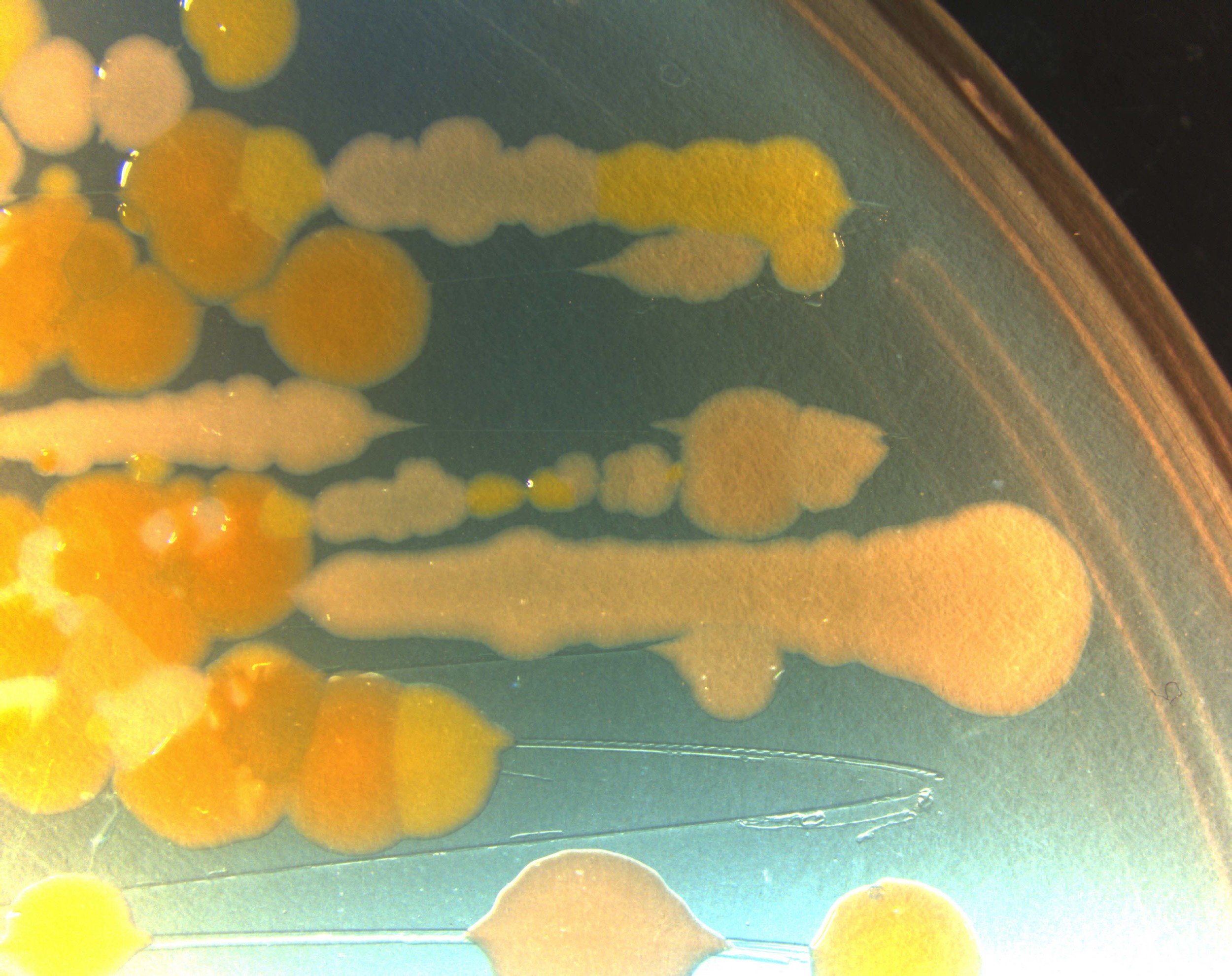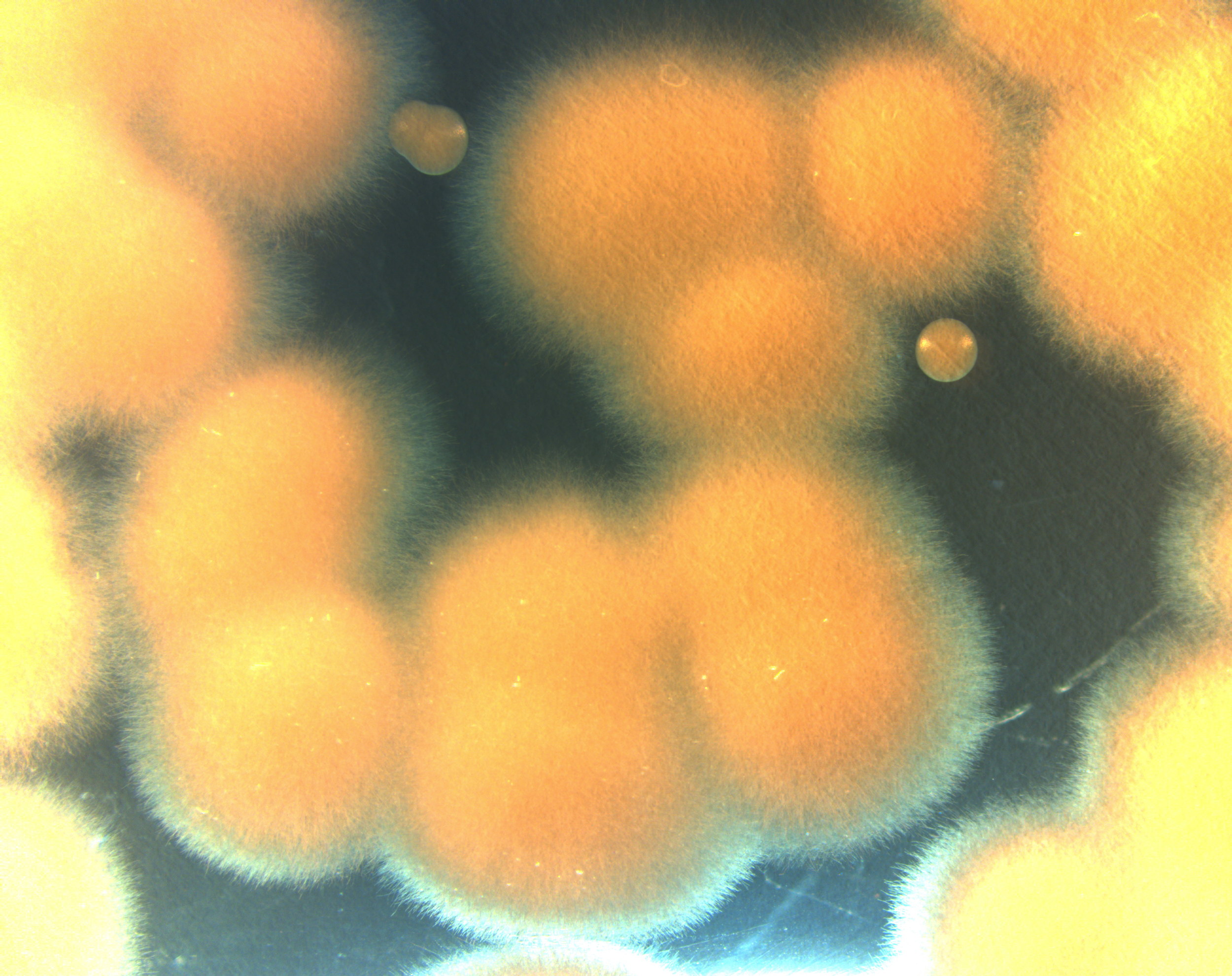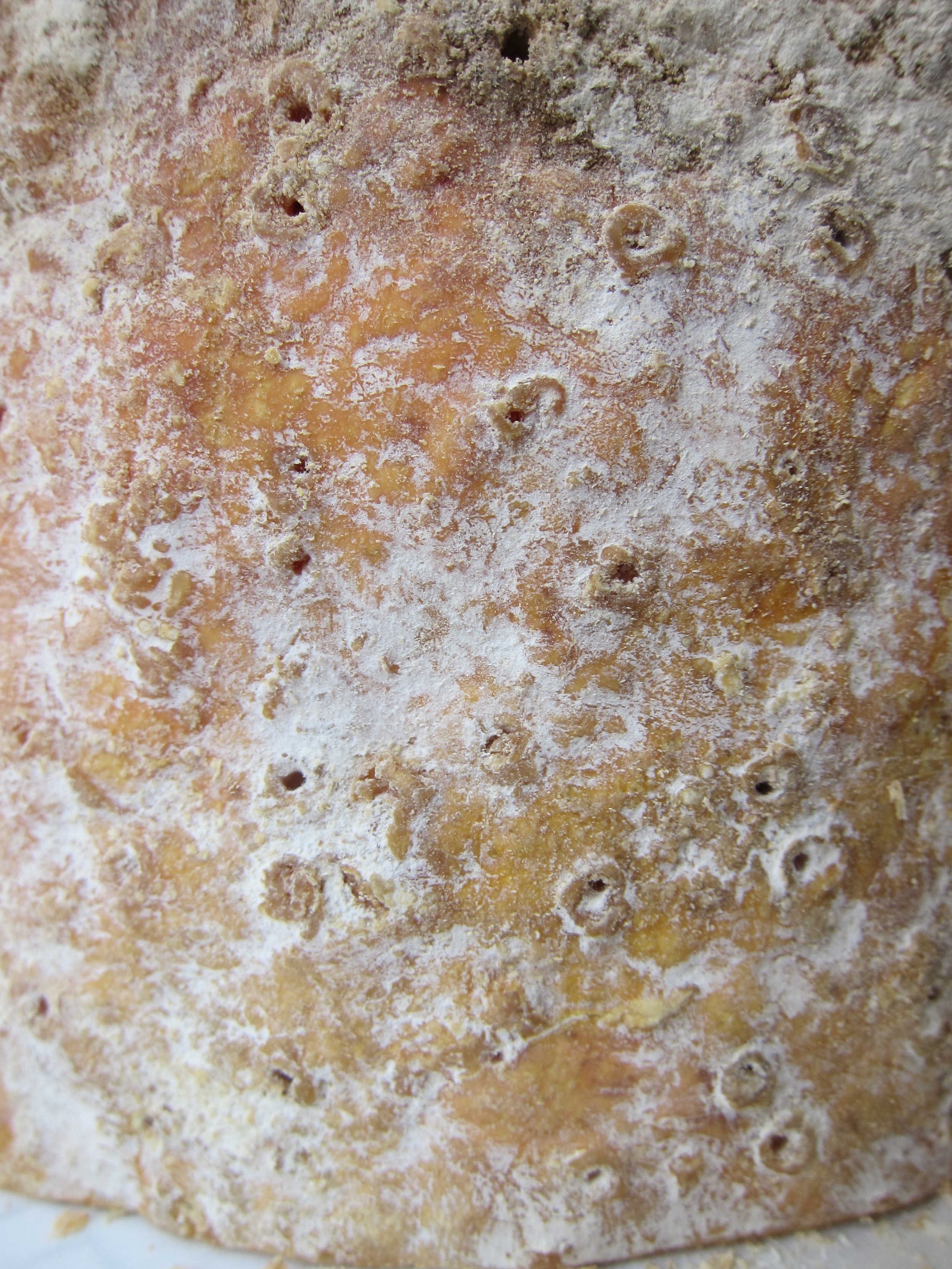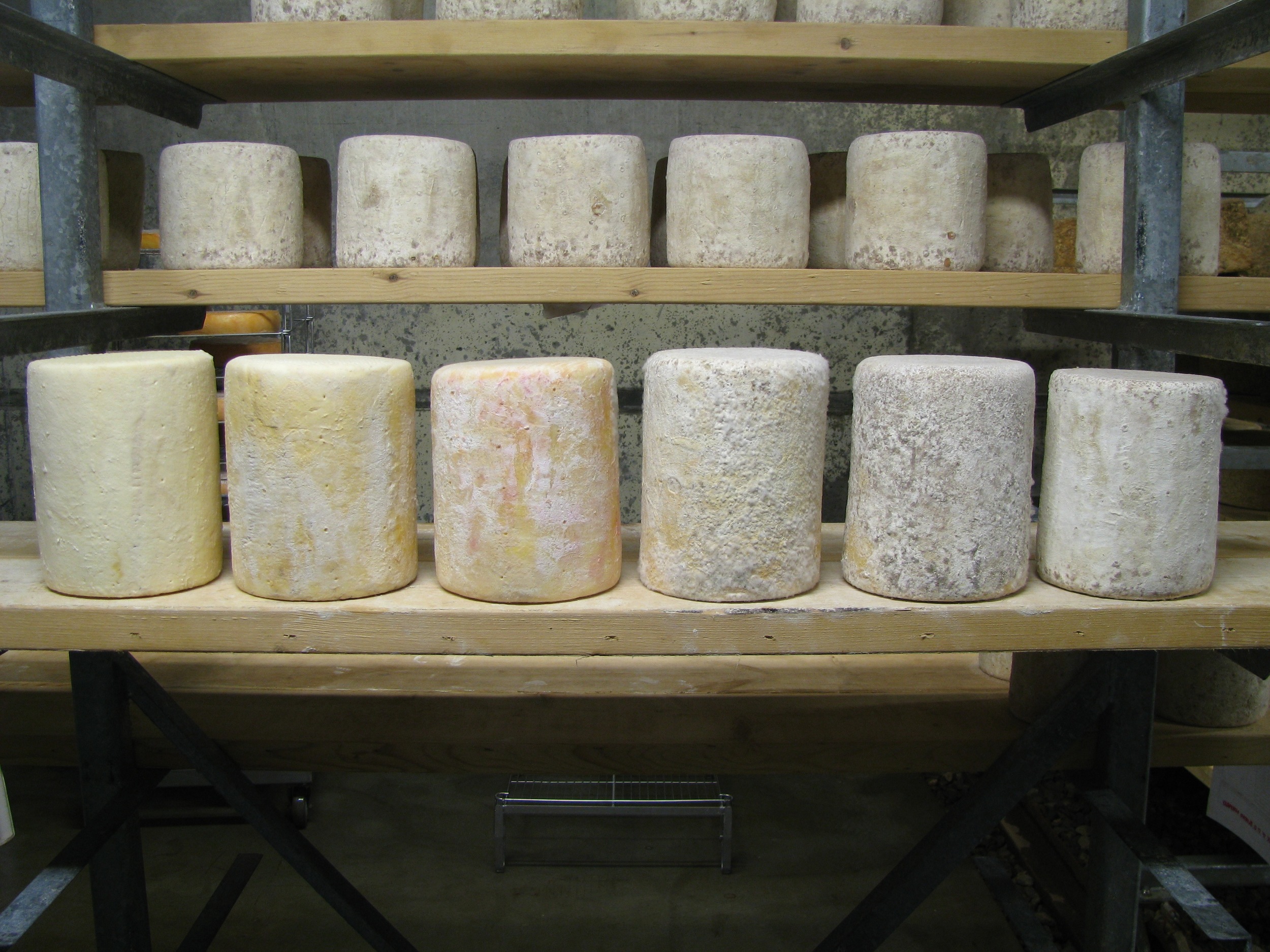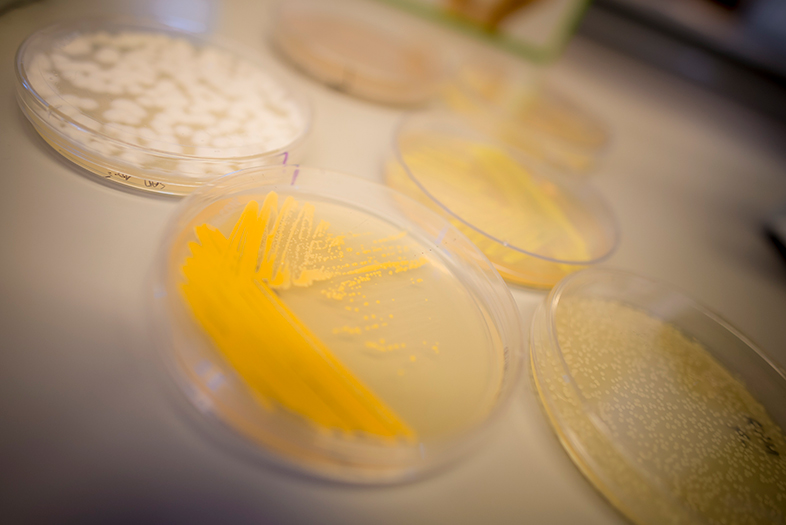WE STUDY THE COMPLEXITY OF MICROBIAL LIFE USING SIMPLIFIED MICROBIAL COMMUNITIES
Microbes rarely live alone. In the ocean, the soil, and the human body, microbes live within complex, multi-species communities. Yet, due to their complexity, it is often extremely difficult to understand how these communities work. To address this challenge, our lab has taken the approach of using simplified microbial communities as model systems.
The goal of our work is to understand the basic mechanisms that are at play within microbial communities, such as those that drive species interactions, and to identify general principles of community formation.
Our model system of choice is cheese.
The microbial communities of cheese are relatively simple, easily culturable, rich in species interactions, and undergo reproducible dynamics of community assembly. Our previous work has focused on establishing an experimental system for building, manipulating, and studying these communities in the lab. We are now working to capitalize on this experimental system to identify molecular mechanisms that are responsible for the formation of a microbial community, and to better understand what happens when this process goes wrong.
As a result of our work in this simplified system, we aim to provide the scientific community with hypotheses, tools, and strategies for understanding and manipulating more complex microbial communities.
The Dutton Lab is located at UC San Diego in beautiful La Jolla, California. We are part of the Section of Molecular Biology, in the Division of Biological Sciences.
LATEST NEWS FROM THE LAB
Rachel makes an appearance on the new Netflix series - Ada Twist, Scientist! Check it out here
The first two PhD students from the lab have successfully defended this year! Emily Pierce (Jan 2021) will continue on as a postdoctoral scholar in the lab, and Brooke Anderson (Sep 2021) starts a new position as a Scientist at Native Microbials!
Can we Brie Friends? The “behind the paper” piece that Emily Pierce wrote about her recent paper!
Emily Pierce’s work on high-throughput genetic screens to dissect bacterial-fungal interactions is published in Nature Microbiology!
Christina Saak and Cong Dinh publish a comprehensive review on horizontal gene transfer within microbial communities - check it out here!
Graduate student Emily Pierce is selected for an iAspire internship at Illumina!
Postdoc Manon Morin and grad student Emily Pierce publish their work on high-throughput genetic screens in communities in eLife! Excellent article about the paper in The Scientist magazine!
Rachel is named a 2018 NIH Director’s New Innovator Award recipient!
Our collaboration on bacterial-fungal interactions with the Sanchez lab at the University of Illinois, Chicago is funded by the NSF!
Postdoc Gary Heussler is named a 2018 Life Sciences Research Foundation Fellow, sponsored by the Simons Foundation!
Congratulations to lab undergraduates Elizabeth Brown and Carla Espinoza for receiving Eureka! Research Scholarships for Biological Sciences to perform summer research in the lab!
Postdoc Kevin Bonham's paper on horizontal gene transfer in cheese is out! Check it out: https://elifesciences.org/articles/22144
Rachel is named a 2017 Pew Biomedical Scholar!
Rachel gave the keynote lecture at the 2017 HHMI SEA-PHAGES symposium to almost 300 undergraduates and faculty participants in the outreach program.
The lab was featured in the June 2017 issue of San Diego Magazine!
Graduate student, Brooke Anderson, received an NSF GRFP fellowship to support her graduate studies!
Rachel is a recipient of a 2016 Packard Fellowship in Science and Engineering!
